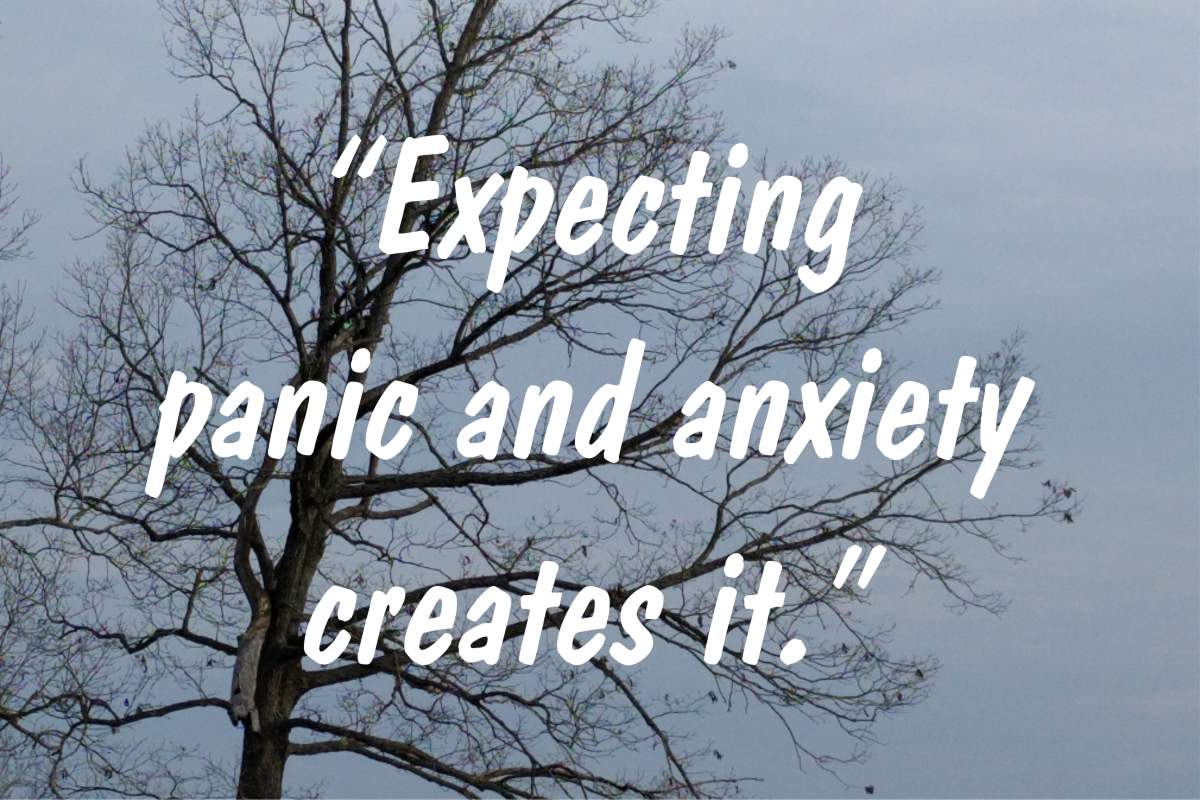










Popular Articles
Crazy-Makers: Dealing with Passive-Aggressive People
Why Are People Mean? Don't Take It Personally!
Struggling to Forgive: An Inability to Grieve
The Secret of Happiness: Let It Find You (But Make the Effort)
20 Steps to Better Self-Esteem
7 Rules and 8 Methods for Responding to Passive-aggressive People
What to Do When Your Jealousy Threatens to Destroy Your Marriage
Guide to How to Set Achieveable Goals
Catastrophe? Or Inconvenience?
Popular Audios
Audio Version of Article: Crazy-Makers: Passive-Aggressive People
Audio Version of Article: Why Are People Mean? Don't Take It Personally!
15 Coping Statements for Panic and Anxiety
by Monica A. Frank, PhD
Coping statements can be part of your strategy to manage anxiety. What are coping statements? When you struggle with anxiety you are usually engaging in fearful and/or inaccurate self-talk which tends to increase the anxiety. The purpose of coping statements is to counter this anxious self-talk.
This series provides an explanation of some common coping statements. The best way to use them is to identify the ones that are most calming to you and repeat them over and over when you are anxious sort of like a mantra. Combining a single statement with taking slow breaths can be particularly helpful.
Coping statement #11: “Expecting panic and anxiety creates it.”
It's bad enough to have anxiety suddenly seize you and make you miserable without having additional anxiety due to worries and fears about it. You may not have complete control over spontaneous anxiety but living in fear of the anxiety only creates more.
When you are fearful of anxiety and expect it to occur, your brain interprets those feelings as meaning that you are already under attack. As a response, the arousal of the autonomic nervous system (ANS) occurs. As discussed previously, the ANS prepares the body to react to a threat. This preparation creates the symptoms of anxiety.
And thus, the anxiety cycle is created: having anxiety creates expectations of anxiety which leads to more anxiety. By stopping this cycle you can eliminate at least part of the anxiety you experience. The best place to break the cycle is in the thought process of expectation that elicits fear.
Not only can expecting anxiety create anxiety but the hyper-arousal it creates can be unhealthy. The chronic stress to the system releases excessive cortisol, the stress hormone that in moderate doses is beneficial to the system. However, long-term excess cortisol can lead to a variety of symptoms including depression, fatigue, abdominal weight gain, and dysregulation of blood sugar.
The spontaneous anxiety and even panic that occurs for those with anxiety disorders can be handled by the body's physical defenses (which includes the beneficial release of cortisol), however the chronic hyper-arousal can overwhelm these defenses. So, those with anxiety need to address the aspects of anxiety that is under their control.
Expectations are something you create and are therefore under your control. Instead of expecting anxiety, shrug off the worries by telling yourself, “I will deal with it when it occurs but until then I'm not going to focus on it.”
Permission to reprint this article for non-commercial use is granted if it includes this entire copyright and an active link.














